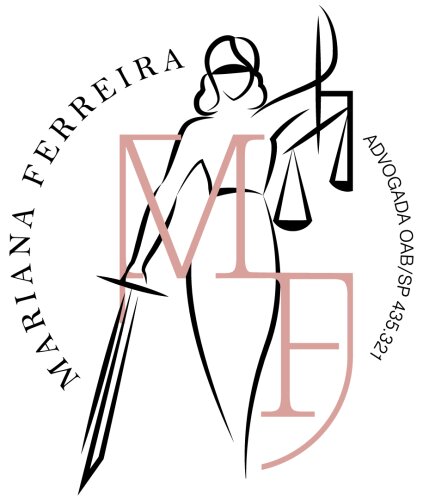Best Juvenile Law Lawyers in Brazil
Share your needs with us, get contacted by law firms.
Free. Takes 2 min.
Or refine your search by selecting a city:
List of the best lawyers in Brazil
About Juvenile Law in Brazil
Juvenile Law in Brazil primarily focuses on issues relating to minors, defined as individuals under the age of 18. Governed by the Statute of the Child and Adolescent (Estatuto da Criança e do Adolescente - ECA), Brazilian Juvenile Law seeks to protect the rights and wellbeing of children and adolescents. It covers areas such as juvenile justice, child protection, adoption, and access to education and health services. The law emphasizes rehabilitation and the best interests of the child as opposed to punishment.
Why You May Need a Lawyer
There are several situations where legal assistance might be necessary under Juvenile Law in Brazil:
- When a minor is involved in a criminal proceeding and requires representation in a juvenile court.
- If there are disputes regarding child custody or visitation rights during family separations.
- In cases of suspected child abuse or neglect, where legal intervention is needed to ensure the safety of the child.
- When seeking to adopt a child through the Brazilian legal system.
- If there is a need for advice or advocacy regarding the education or healthcare rights of a child.
Local Laws Overview
Key aspects of local laws relevant to Juvenile Law in Brazil include:
- The Statute of the Child and Adolescent (ECA): It outlines the rights of children and adolescents and provides the framework for their protection in legal matters.
- Age of Criminal Responsibility: Minors under the age of 18 are not subject to the same criminal laws as adults and are tried in a different legal system focused on rehabilitation.
- Protective Measures: The law provides several measures to ensure the safety and development of children, including placement in foster care or adoption.
- Family Law: Regulations concerning custody, guardianship, and parental rights fall under the Civil Code but are closely intertwined with Juvenile Law principles to protect minors.
Frequently Asked Questions
What is the role of a juvenile court in Brazil?
Juvenile courts in Brazil handle cases involving minors, focusing on rehabilitation rather than punishment. They oversee matters like juvenile delinquency, child protection, and custody disputes.
At what age can a child be tried as an adult in Brazil?
In Brazil, minors under 18 are tried as juveniles and not as adults, regardless of the offense. The focus remains on rehabilitation.
How does adoption work under Juvenile Law in Brazil?
Adoption is governed by the ECA, ensuring the child's best interest is prioritized. Prospective parents are subject to evaluation and must comply with several legal requirements.
What are the rights of children in Brazil?
Children in Brazil have rights to education, healthcare, protection from abuse and exploitation, and participation in decisions affecting their lives, as outlined in the ECA.
How can custody disputes be resolved?
Custody disputes are settled in family courts. The priority is always the child's best interest, ensuring their safety and wellbeing.
What if a child is accused of a crime?
If a minor is accused of a crime, they will be subject to the juvenile justice system, focusing on rehabilitation, and legal representation will be required.
How does the law protect children from abuse?
The law mandates reporting suspected cases of abuse. Authorities can remove the child from harmful situations and provide necessary protections.
What support is available for children in foster care?
Children in foster care are entitled to support that includes healthcare, education, and social services to promote their development.
Are minors entitled to health care in Brazil?
Yes, minors have the right to free public healthcare services under the Brazilian Unified Health System (SUS).
Can a child express their opinion in legal proceedings?
Yes, the ECA ensures that children whose capacity to form their own views is respected are allowed to express their opinions in matters affecting them.
Additional Resources
For further assistance and information, consider reaching out to the following resources:
- The Department of Child and Adolescent Rights, Ministry of Women, Family, and Human Rights.
- Brazilian Bar Association (Ordem dos Advogados do Brasil - OAB) for recommendations on legal representation.
- Local Child Protective Services for cases involving abuse or neglect.
- NGOs such as UNICEF Brazil, focusing on child rights and protection.
Next Steps
If you need legal assistance with Juvenile Law in Brazil, consider taking the following steps:
- Contact a Lawyer: Reach out to a lawyer who specializes in Juvenile Law to understand your specific situation and receive tailored advice.
- Consult Local Bar Association: Use the resources of the Brazilian Bar Association to find qualified legal representation in your area.
- Gather Necessary Documentation: Prepare all relevant documents related to your case to expedite the legal process.
- Seek Advice from Government Agencies: Government resources may offer free legal assistance or guidance depending on the issue.
Remember, early legal consultation can be crucial in ensuring the best outcome for the minors involved.
Lawzana helps you find the best lawyers and law firms in Brazil through a curated and pre-screened list of qualified legal professionals. Our platform offers rankings and detailed profiles of attorneys and law firms, allowing you to compare based on practice areas, including Juvenile Law, experience, and client feedback.
Each profile includes a description of the firm's areas of practice, client reviews, team members and partners, year of establishment, spoken languages, office locations, contact information, social media presence, and any published articles or resources. Most firms on our platform speak English and are experienced in both local and international legal matters.
Get a quote from top-rated law firms in Brazil — quickly, securely, and without unnecessary hassle.
Disclaimer:
The information provided on this page is for general informational purposes only and does not constitute legal advice. While we strive to ensure the accuracy and relevance of the content, legal information may change over time, and interpretations of the law can vary. You should always consult with a qualified legal professional for advice specific to your situation.
We disclaim all liability for actions taken or not taken based on the content of this page. If you believe any information is incorrect or outdated, please contact us, and we will review and update it where appropriate.
Browse juvenile law law firms by city in Brazil
Refine your search by selecting a city.
















